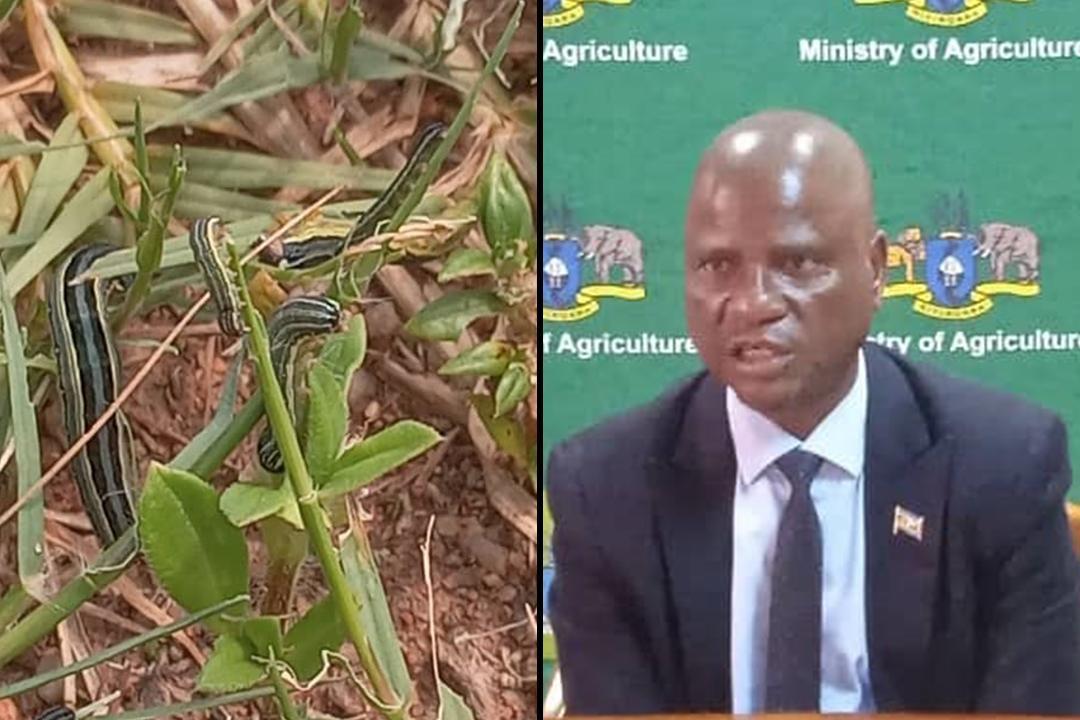Africa-Press – Eswatini. Minister of Agriculture Mandla Tshawuka has warned against using Master 900 and other harmful insecticides to combat the invasion of African armyworms.
Speaking at a press conference on February 17, 2025, held at the Ministry’s offices in Dlanubeka, Mbabane, the minister emphasized that such insecticides could have severe negative effects on the environment, potentially endangering livestock such as cattle, goats, and chickens, as well as crops like maize and beans. The press conference aimed to educate farmers on effective and safe ways to respond to the invasion.
The African armyworms have reportedly invaded areas such as Sigwe, Mpuluzi, Nhlambeni, Ngculwini, Nyonyane, Matsamo, Mayiwane, Gege, and Madlangemphisi, among other areas.
Distinguishing Between Armyworm Types
Tshawuka clarified the difference between African armyworms and fall armyworms. While fall armyworms are known to consume over 350 plant species, Master 900 is only effective against fall armyworms and should not be used to control African armyworms.
Recommended Control Methods
The minister outlined various eco-friendly and effective methods for managing African armyworms:
Mechanical Control:
Farmers should dig a trench around their fields using a mouldboard plough, either with a tractor or oxen.
The trench should have a steep side facing the field, making it difficult for armyworms to climb back up.
Biological Control:
Chickens can be used to naturally reduce the worm population.
Farmers are encouraged to scatter maize grains to attract chickens, which will feed on the armyworms.
Mild Chemical Control:
The minister advised farmers to use mild, environmentally friendly chemicals, which can be identified by yellow stripes on their containers.
He strongly discouraged the use of chemicals with red stripes, as these are harmful to the environment.
Support for Farmers
Tshawuka reassured farmers that senior extension officers have been deployed across Eswatini’s four regions to provide assistance. He also shared their contact details for farmers in need of support:
Hhohho Region: Cyclone Ntshakala – 7628 2814
Manzini Region: Mazwi Dlamini – 7648 1069
Lubombo Region: Phumelele Dlamini – 7617 5770
Shiselweni Region: Mvuyo Mabaso – 7637 8114
Final Remarks on Rainfall
In his closing statement, Tshawuka expressed hope for continued rainfall, as African armyworms thrive in dry conditions. He acknowledged the Meteorology Department’s forecast of upcoming rains but noted that rainfall can be selective, benefiting some areas while leaving others dry.
The minister urged farmers to act swiftly using the recommended methods to protect their crops while prioritizing environmental safety.
For More News And Analysis About Eswatini Follow Africa-Press







